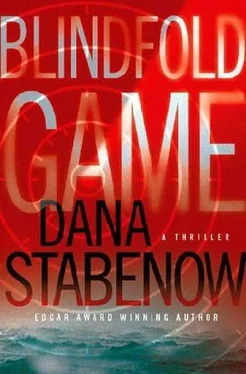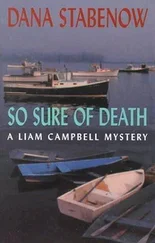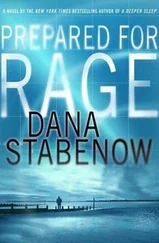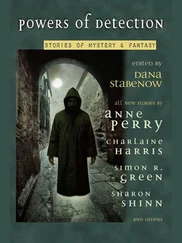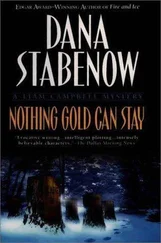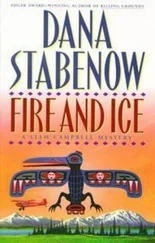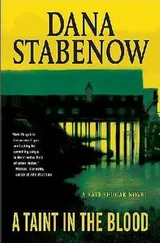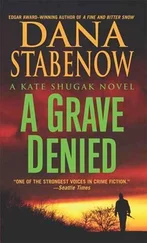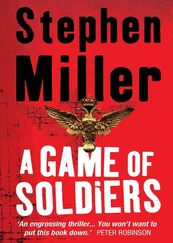Frantically, Noortman tried to jerk his head out of the way. Arlene grabbed a handful of his hair and held him still while Hugh taped his mouth again. Noortman screamed behind the gag, and kept screaming as the hammer came down again on the same knee.
This time Noortman threw up behind the gag, and when Hugh ripped it free he had to step back quickly to avoid being hit by the braised abalone in oyster sauce he had just watched Noortman eat. Arlene grabbed Noortman’s hair and yanked his head upright. “In October you met with two men from North Korea in a cafe in Pattaya Beach, Thailand. Who were they? What did they want?”
The bottom half of Noortman’s right leg was canted at a hideously awkward angle. Blood ran into his fashionable leather shoe and stained its gold buckle. “I can’t, I can’t,” he moaned.
Arlene raised the hammer, and this time she reversed it so that the claw side was down. Noortman saw it and screamed again.
AN HOUR LATER ARLENEand Hugh were in a cab on their way back to the airport. “Where the hell did you get that hammer?” Hugh said at random, trying not to think of the scene they had left behind in Noortman’s apartment.
“There were a bunch of construction guys doing a remodel on a shop. There was an open toolbox with the hammer sitting right on top.”
“Well done,” Hugh said, but his heart wasn’t in it.
“What’s wrong?” she said, unruffled, matter-of-fact. “We got what we needed.”
“Yeah,” Hugh said. “We did that.”
Her expression softened. “You’re not in the field a lot, are you, Hugh?”
He tried to smile. “Once a desk man, always a desk man.”
The things he had done in Noortman’s apartment would haunt him for the rest of his life. Noortman had broken so quickly and so completely, he had given them everything they had asked for and more, but Hugh could find no cause in that for self-congratulation, and definitely none for humor.
“What next?”
Hugh thought about it. “Home,” he said.
Arlene cleared her throat with delicacy. “Are you, ah, calling in first?”
“You mean the director?” Hugh thought about that for a while, too. He had a cell phone, but he always used a landline when he could. Cell phone signals were far too easy to tap into. “I’ll call him from the airport.”
“Will he believe you?”
Hugh took a deep breath and let it out. “Probably not. That’s why I’m going home.”
“Home,” she said. “You don’t mean D.C., do you.”
He didn’t answer. They rode for a few minutes in silence.
“Hugh, is this the smart thing to do?”
Hugh gave Arlene one incredulous look, and laughed out loud.
NOORTMAN LAY ON THEexquisite Afghan carpet where he had fallen from the chair when they’d cut him free of the duct tape. He didn’t know how much time had passed. The bleeding had stopped, and so long as he remained absolutely motionless his leg didn’t hurt.
Of course, if he so much as twitched, the pain was agonizing and all-encompassing, subsuming every other sense. At some point, he would have to crawl to the phone and call for help, which he planned to do as soon as he summoned up the necessary strength.
The color of blood was no longer pleasing to him. He would never again be able to tuck a red silk handkerchief into a pocket and think of his father. Instead he would think of himself, broken, bleeding, lying in his own filth, a victim of strangers who had invaded his own home.
The police, yes. He should call the police. As soon as he gathered a little more energy.
They would want to know what had happened. He had invited a stranger into his home and had been attacked, that was what he would say. Of course, his description of his assailant would be suitably vague. He wouldn’t want Reeve interrogated, something that could cause untold complications. As a foreign national residing in Hong Kong, he had to be careful not to make a fuss. If he did, the notoriously parochial local police would find a way to invite him to leave.
He had never been a very good liar, so it was going to take some thinking out before he made the call, and he hurt very much and he was very tired.
And yet, and yet, he knew a tiny spark of triumph growing deep inside him.
He had told them, yes, told them enough for them to stop hurting him.
But not everything.
The fibers of the carpet pressing into his cheek, he smiled.
PETROPAVLOVSK
FANG WAS SWEATING INspite of the below-zero temperatures and the brisk onshore wind that dropped the chill factor into the minus double digits. It didn’t help that it was three o’clock on a January morning six thousand miles north of his usual area of operations.
The immense, untidy yard was a mass of rectangular containers imprinted with the names and logos of shipping firms from all over the world, Maersk Sealand, Cosco, Pan Ocean Shipping, Teco Ocean Shipping, even Czech Ocean Shipping and a host of other names of maritime freight firms too small or specialized to be immediately recognizable. The containers were lined up in rows forming aisles just wide enough for the tractors and lifts to maneuver between them.
The yard was brightly lit with halogen lamps mounted on fifty-foot poles, but the containers were stacked three high and cast deep, dark shadows, providing a wind tunnel effect to consolidate every passing breath of air into what felt to Fang like a gale-force draft. He shivered again, the nervous sweat congealing on his spine. The zip of his parka was already up as high as it would go, but he tugged at it anyway, and cursed involuntarily when the teeth caught at the flesh beneath his jaw.
Smith’s head whipped around. He didn’t say anything. He didn’t have to. An unaccustomed flush flooded up into Fang’s cheekbones. He set his teeth and looked down to fiddle unnecessarily with the chest strap of his pack. Like the parka, it was the very best U.S. military surplus issue.
They were crouched next to a twelve-foot chain-link fence topped with razor wire, just outside the reach of the lights, which were directed inward at the yard and the containers. Armed guards roamed the perimeter, but on a night like this they were spending more time in the guard shack down at the gate that faced the docks than they were on patrol. The shack was a hundred feet away, but every time the shack’s door opened Fang could hear a burst of Russian music and loud laughter. Sons of bitches were probably knocking back the vodka with a fine and free hand. All the better for this operation.
They had gathered together in a group for the first time that afternoon, Smith and Jones and their twenty men, Fang and his ten. The building was a small warehouse with a loft holding up a hoist. There was a small area in back of the hoist where their equipment and supplies had been stacked in wooden crates stenciled with the logo of the United Nations and the notation printed matter on the sides.
Another of Noortman’s little jokes. If he’d called for the crates to be anything other than books, foodstuffs, say, or hand tools, no bribe would have been big enough to keep the Russian customs officials from helping themselves to a bonus and discovering the true contents of the crates. The UN logo, even Fang was pushed grudgingly to admit, was a mark of genius. Not only were they books, an observer would conclude, they were most likely tracts on crop rotation or home health care or English as a second language. Also, books were heavy, which would account for the weight.
They had pried open the crates and dressed in silence, fatigues, cold-weather gear, heavy lined boots with nonskid soles, headsets with microphones keyed to the same frequency. And of course weapons, pistols and rifles, the latest in automatic weapons, with enough ammunition to start a war.
Читать дальше
